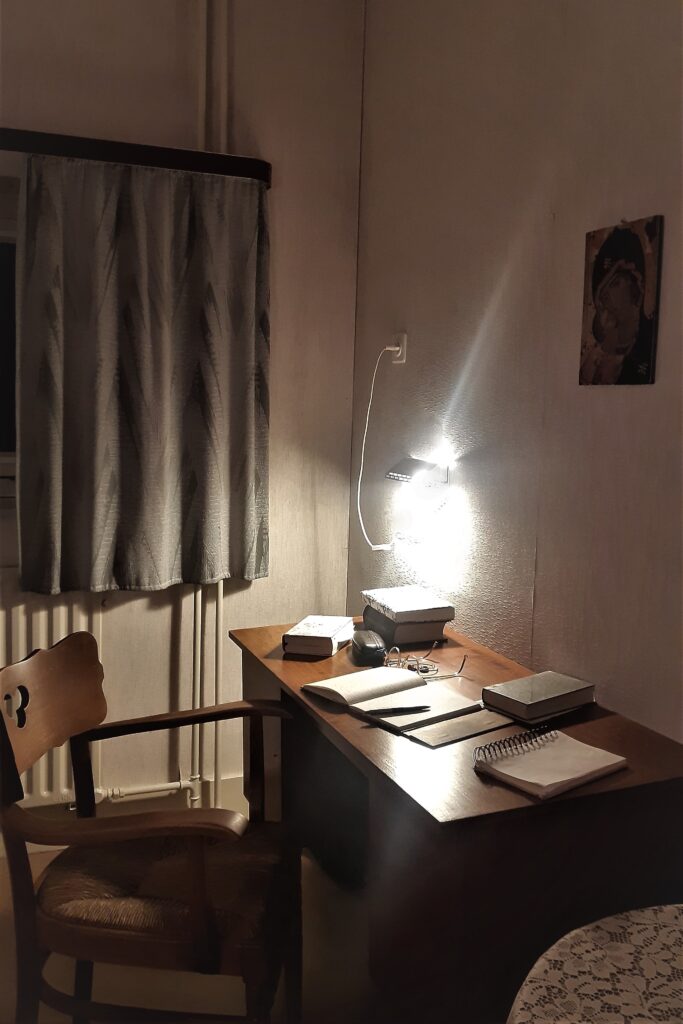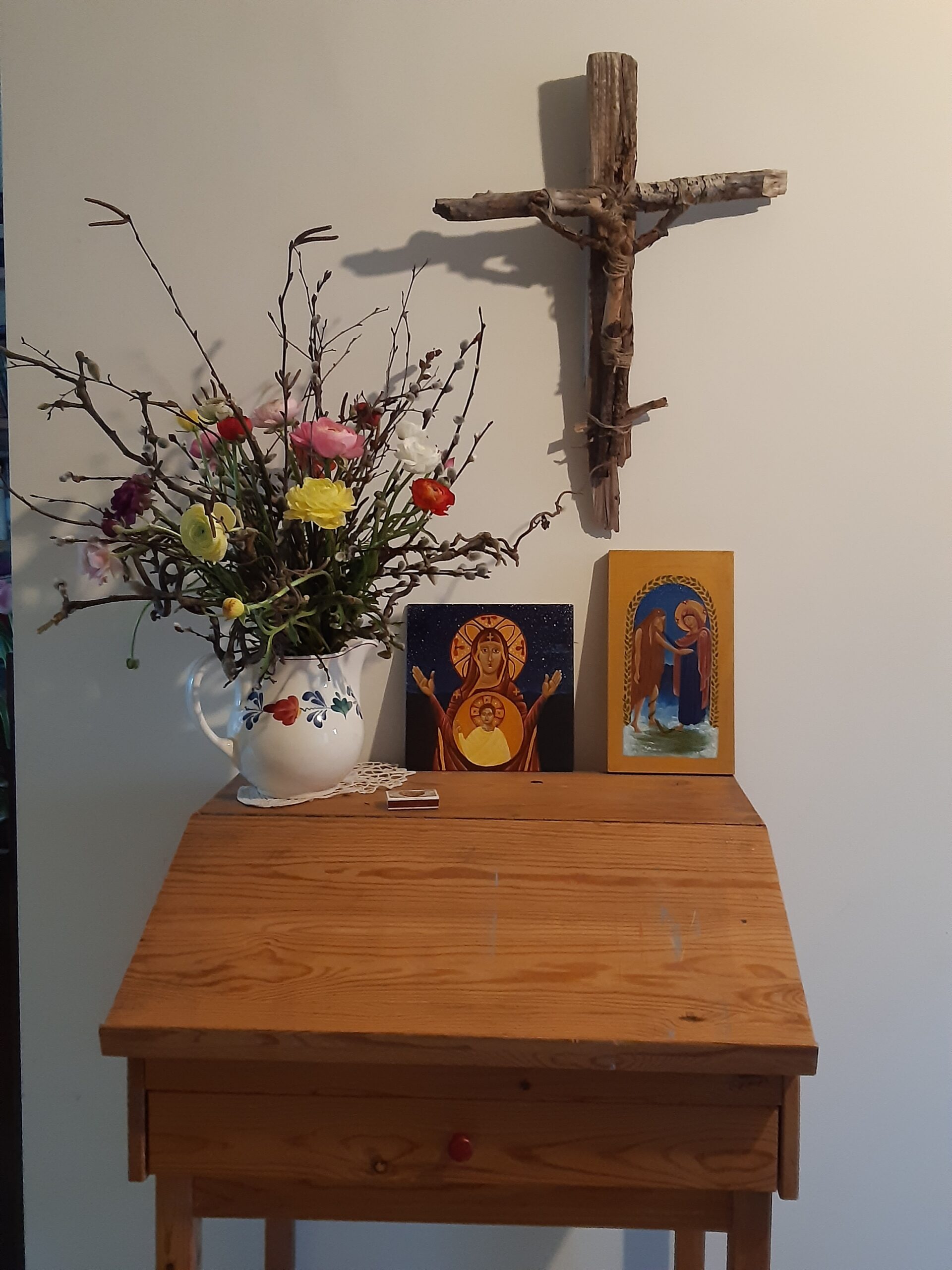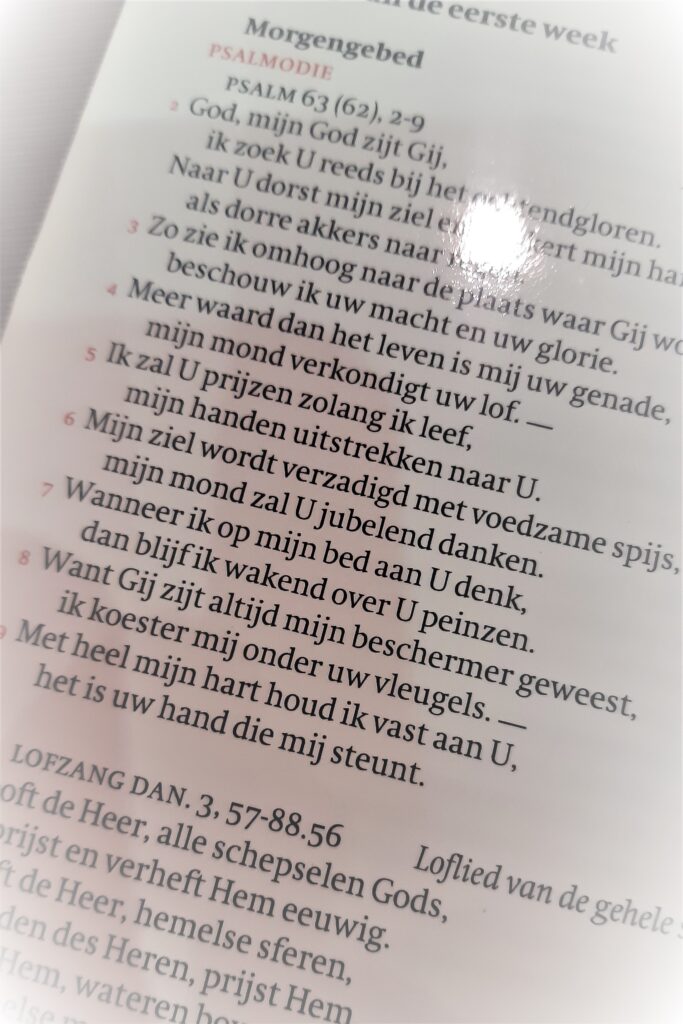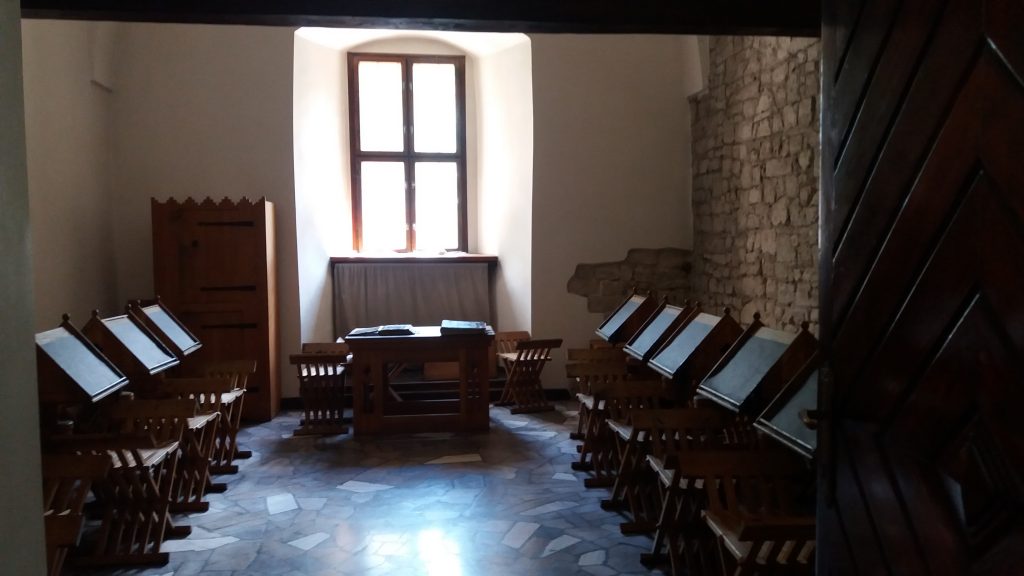Come now, insignificant man,
fly for a moment from your affairs,
escape for a little while from the tumult of your thoughts.
Put aside now your weighty cares and leave your wearisome toils.
Abandon yourself for a little to God and rest for a little in Him.
Enter into the inner chamber of your soul,
shut out everything save God and what can be of help in your quest for him and having locked the door seek him out.
Speak now, my whole heart, speak now to God:
‘I seek your countenance, O Lord, your countenance I seek.’
Come then, Lord my God,
teach my heart where and how to seek you, where and how to find you.
My friend Anneke, who joined me on all kinds of retreats, said, “Hey, I cannot find your blog about contemplative writing!” With good reason: I never wrote it and only used contemplative writing as a workshop activity during the retreats. That is changing now, and I am happy to share this, hoping that it may be of benefit to you and give you a deeper connection with God and His Word.

What is contemplative writing?
Contemplative writing is a calm way of copying a text and going through it letter for letter. The text is opened to you through the writing process as you focus on it with your body and mind. It is literally affecting your body when your hand is touching the pen and paper as well as through your head when you see what you have to write.
It was in 2013 that I heard about a man in New York who was copying the Bible. I found it very interesting. Sitting calmly and diving deep into a text is not something that comes naturally to me. I need to put myself to it, create time and space, but once I do it, I really benefit from it. This way of slowing down gave me depth in a way that was new for me so far.
You can use the Bible or another text, like a poem, some other ancient text (like the words below from Anselmus of Canterbury or a text from Augustine or Thomas of Aquino, whatever you choose.)

It is essential to create time and space for contemplative writing
How can it help you?
This is something I cannot answer for you; you have to experience it and just try it out if you like. Do not expect high and vague experiences—but it does give depth. I started in 2013, and for me, it helped in these ways:
Contemplative writing helped me to:
- Calm down and receive a quiet spirit.
- Experience a text in a way differently from reading as it goes literally through me, my hands, my brain, my body.
- Really focus on the text that I have before me and see more context.
- Learn discipline, just continuing slowly and steadily.
- Discover a nice surprise—not always, and not automatically. But I did experience some precious moments through the writing process. Sometimes, I share a bit about such moments during retreats.
At first, I started by copying a few psalms. I loved that very much. The psalms are very suitable for contemplative writing. After that, I did Paul’s letter to the Ephesians, and since then, I longed to start a real challenge and began with Matthew. I finished Matthew, Mark, and Luke, and now, I am working on John.
It is good to have a bit of discipline, but I also sensed that it was harder for me to do contemplative writing during the time of our move. I did not have the inner rest necessary for writing in this way. So I set it aside for a year and picked it up where I left off. I do not set targets. For me, it needs to be free writing without goals. I am an enormous goal setter, but it just does not seem to fit with contemplative writing, because contemplative writing is a journey in itself. Sometimes a set a small goal for a period of time, like lent.
Contemplative writing is a journey in itself
How do I start contemplative writing?
- Make sure that your environment is calm and that there are no distractions around you. A quiet corner in your house is quite essential. An empty table, maybe with a candle or crucifix. A little beauty is always good soul food.
- Make sure that your chair and table are in a good place; think about light and harmony in the room. Sit calmly and quietly. Breathe in and out. Take your time as you write. The goal is not to finish writing out the passage but to spend time in God’s Word and spend time with God. Savor the process of looking closely at every word.
- Use a good notepad and your best pen. You do not have to be satisfied with cheap scrap paper. There is a certain level of necessity when it comes to beauty.

- Start small with just a few verses, and when you have the hang of it, try writing out a whole book of the Bible instead of isolated sections, especially narrative-style books. This will help you view the book as a whole, understanding its complete message in context. Begin writing slowly, focusing on each word and what it means in the immediate and broader contexts.
- Sample texts: Psalm 23, 25, 31, 40, 103, 130, 139; or, if you are in for a challenge, Ps. 119. (You do not have to write it all in one go.) Take a letter from Paul, or the book of Ruth; the gospel of Mark, or just a chapter: Matt. 5, (Beatitudes) Matth. 17, John 17.
- Begin with a prayer and invite God into your room, into your being, and into your writing.
Here is a prayer that you could use:
Dear God,
You are a God from far away and a God from nearby.
I do not see You, but I would love to experience You.
I invite You in this room and into my writing.
Make me aware of Your presence here.
Reveal something new to me.
Fill me with Your Holy Spirit
Thank You for being willing to be here with me.
In the Name of the Father and the Son and the Holy Spirit.
Amen.

Suggestion:
Give a handwritten psalm or letter from Paul as a present to a friend or family member. This gift is quite personal, your very own handwritten text. Or just start with the prayer from Anselmus from Canterbury.
Here, you can read about the experiences of previous participants during the Online Retreats that we held during Covid19.
A question?
If you have a question about contemplative writing or something else, please do not hesitate to ask.
Warm greetings. Janneke
|
A rousing of the mind to the contemplation of God
fly for a moment from your affairs, escape for a little while from the tumult of your thoughts. Put aside now your weighty cares and leave your wearisome toils. Abandon yourself for a little to God and rest for a little in him.
shut out everything save God and what can be of help in your quest for him and having locked the door seek him out. Speak now, my whole heart, speak now to God: ‘I seek your countenance, O Lord, your countenance I seek.’ Come then, Lord my God, teach my heart where and how to seek you, where and how to find you.
|

2 comments